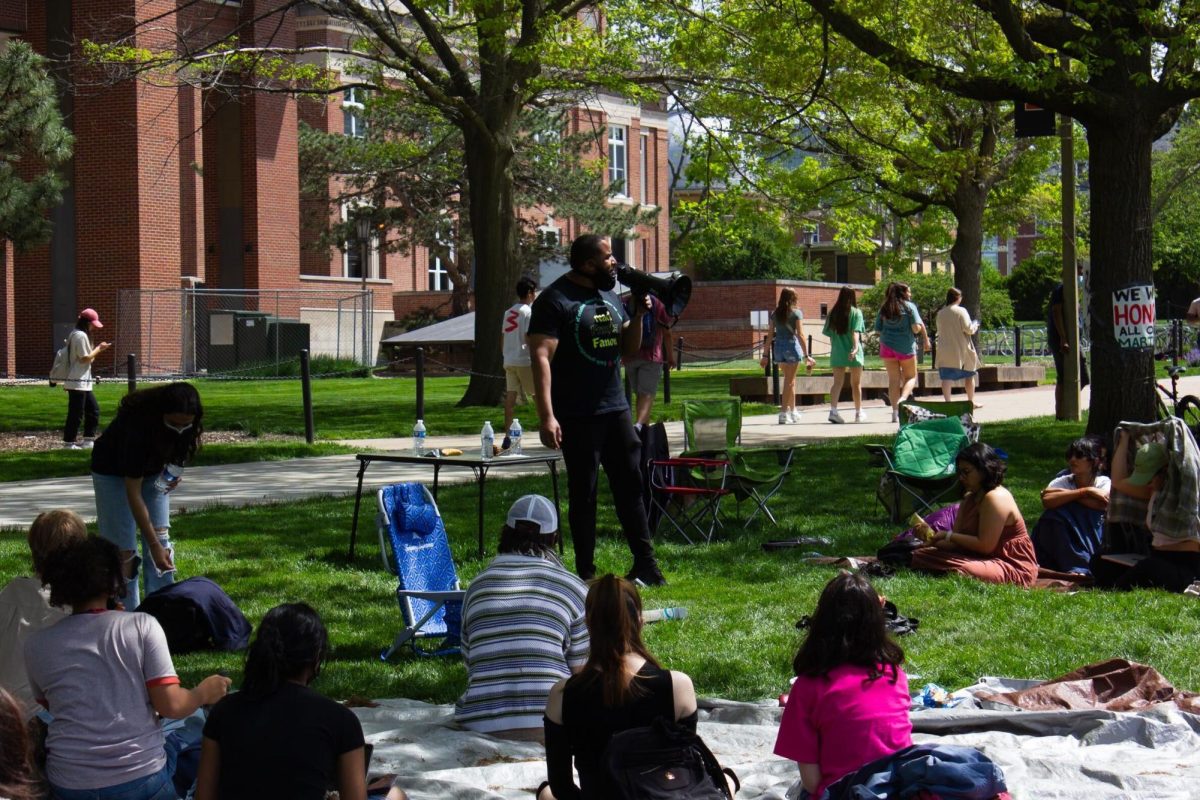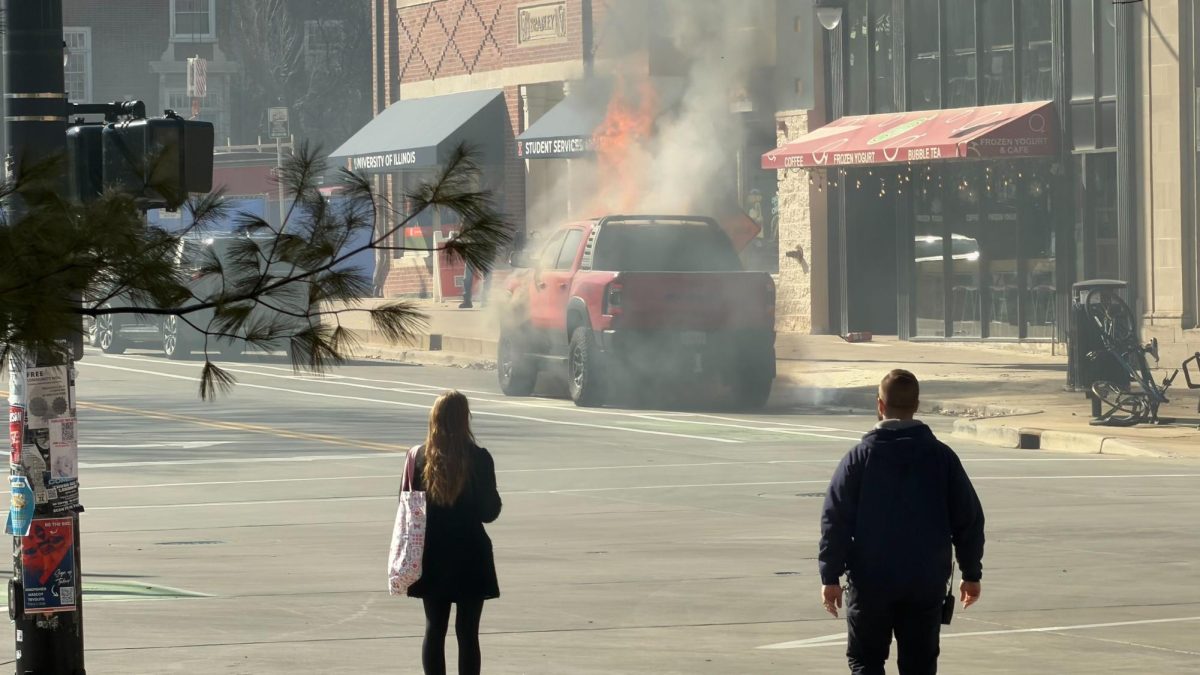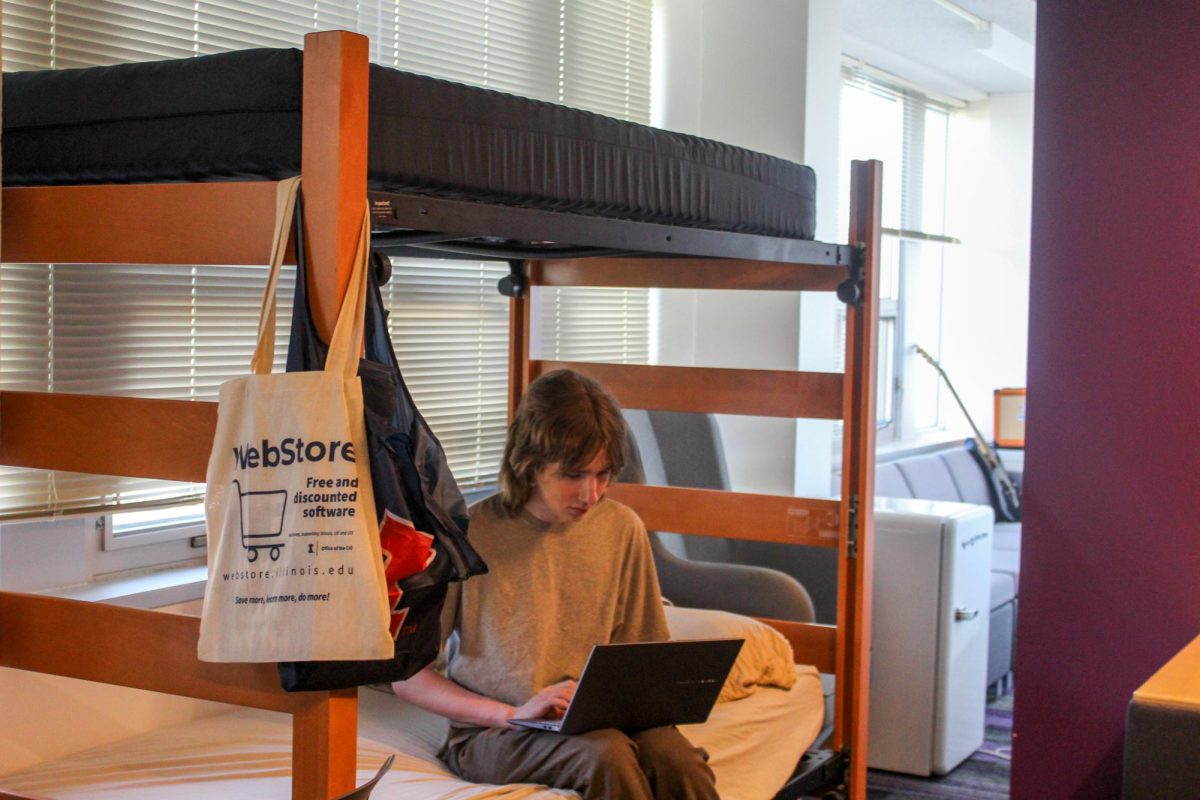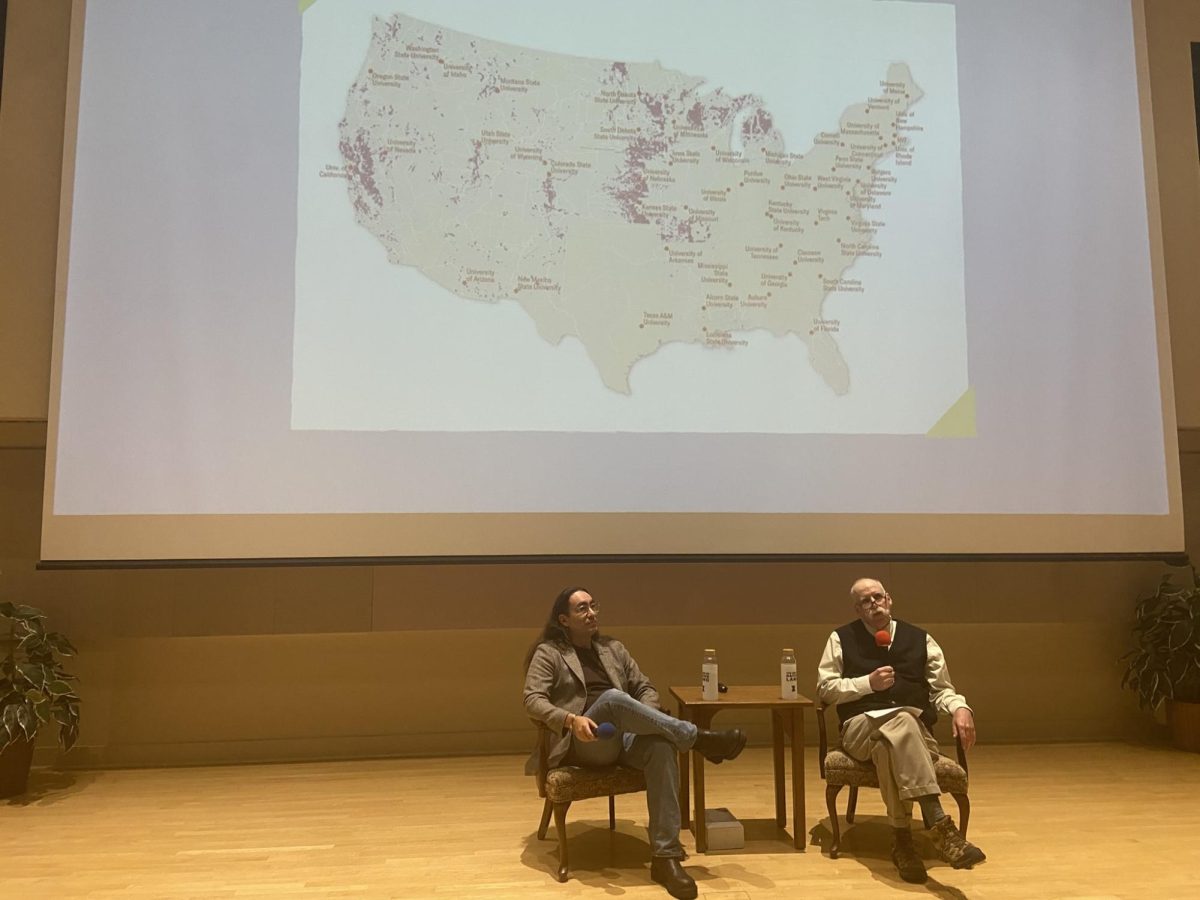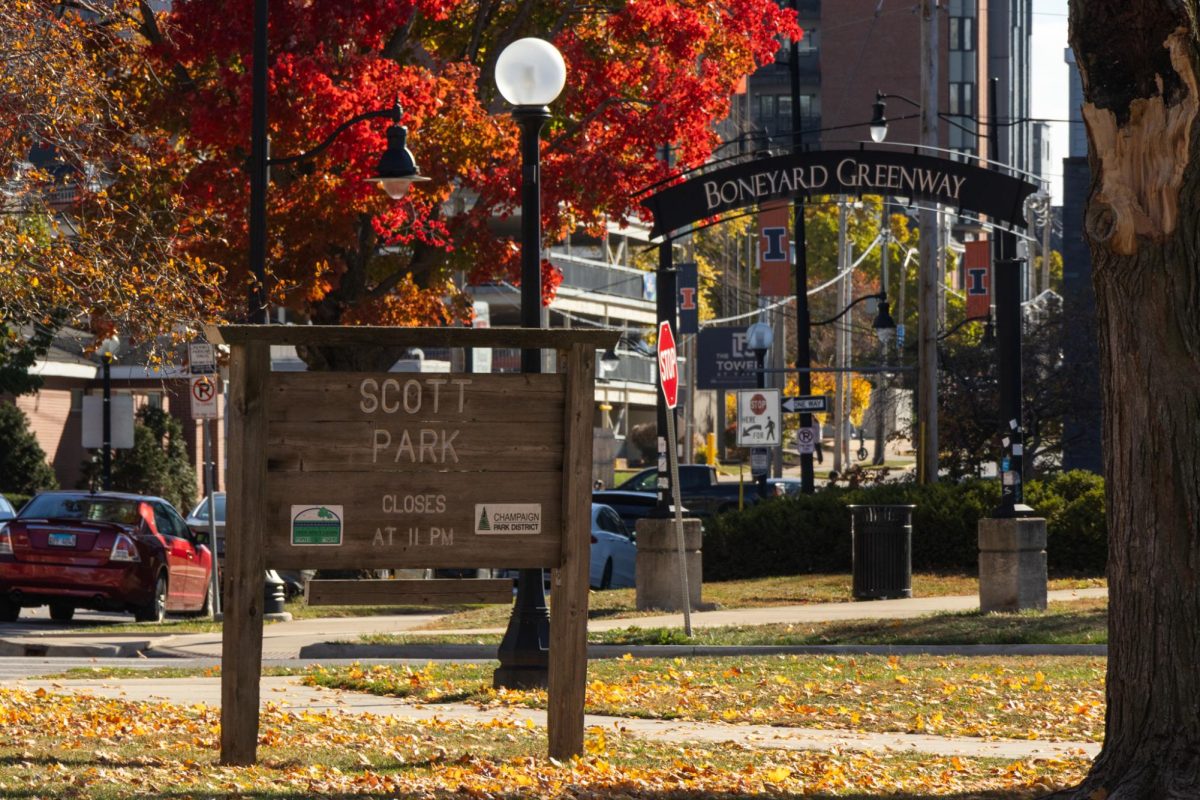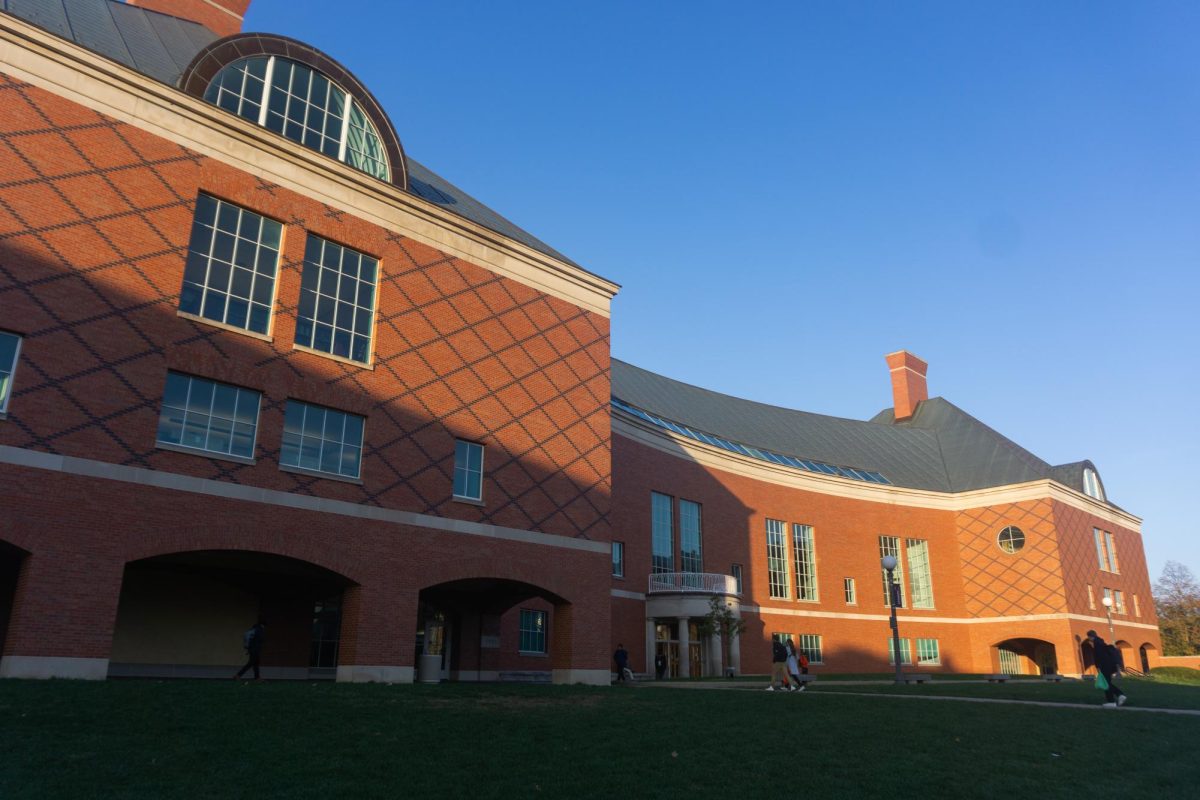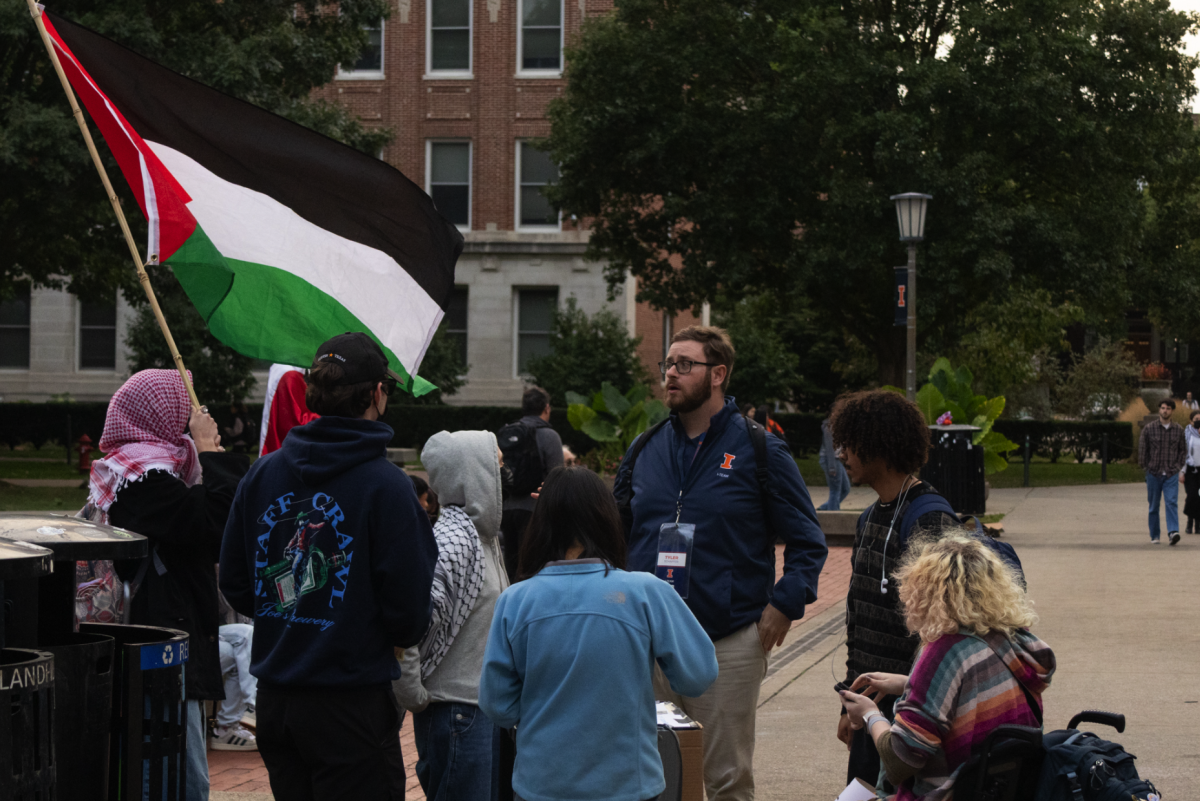Last updated on April 12, 2025 at 01:44 p.m.
While the pro-Palestinian protest on the Main Quad continues, student protestors are not the only ones who populate the swarm of tents assembled at the foot of the Foellinger Auditorium. Members of University faculty have also made appearances at the encampment, showing support for the students.
Despite their willingness to be present, faculty are running significant personal risks by being seen in the protest or voicing their thoughts on the subject.
“I think around this particular issue, there’s a lot of hesitancy and fear about speaking about it, first of all on our own, and even to the extent of supporting students,” said Maryam Kashani, associate professor in Gender and Women’s Studies and Asian-American studies. “Junior faculty are asking, ‘How much risk is there to even just be here at the encampment?’”
The level of potential retaliation from the University and the future status of their jobs are factors that generate a level of fear in faculty looking to support protesting students — fear that Kashani believes is very real.
Get The Daily Illini in your inbox!
“I will say there’s also a lot of great faculty members who are really weighing the risks and their actual desire and responsibility to protect students and are showing up and speaking out and showing support,” Kashani said.
Kashani highlighted that concern for repercussions is particularly prevalent in junior professors, as professors with tenure have a level of protection from termination that junior professors do not.
Junior professors are those still working under the University’s six-year probationary period, where their teaching is subject to evaluation to determine if they will achieve tenure.
If a professor is given tenure after review from the University, the limited grounds of dismissal include gross neglect, incompetence or advocating for the overthrow of our constitutional form of government by force.
“I just got tenure this year,” Kashani said. “So I feel much more comfortable being maskless in this space, speaking to the students and being present and supporting them.”
Despite the increased security tenured faculty enjoy, the University has shown in the past that it is willing to fire tenured faculty who speak publicly on the Israeli-Palestinian Conflict.
In 2013, the University hired Steven Salaita as a tenured professor in the American Indian Studies Program to begin teaching in August of the following year. In the weeks leading up to the start of his position, the 2014 Gaza Conflict broke out, ultimately leading to the deaths of 2,251 Palestinians, 1,462 of whom were civilians, and 73 Israelis, six of whom were civilians. As a result, Salaita made several tweets that were extremely critical of Israel and its actions.
Two weeks before he was set to begin his new role, Salaita was fired by the University due to the determination that the tone of the tweets was uncivil. The decision was met with backlash in the academic community, including a censure from the American Association of University Professors.
“We actually feel the repercussions of Salaita not being here as a professor now,” Kashani said. “We don’t have an expert who can talk about the situation right now in occupied Palestine and he was actually hired to teach Indigenous studies … he was going to be thinking about ‘how do we understand indigeneity globally?’”
Regardless of the University’s past actions, Kashani still feels that she as a professor should appear at the encampment, not just for the support of students, but also for their safety.
“I think the students feel better that we’re here because they feel somehow that the administration will think twice before sending the police down,” Kashani said. “I think there’s a certain legitimacy that comes with the letters before our names.”
Even if consequences do come, Kashani has come to terms with their worst potential, still confident in her choice to support the protesting students.
“I might lose my job,” Kashani said. “But for me, it was worth it because what’s the point otherwise, doing this job, if I can’t educate people about what’s happening in the world.”



